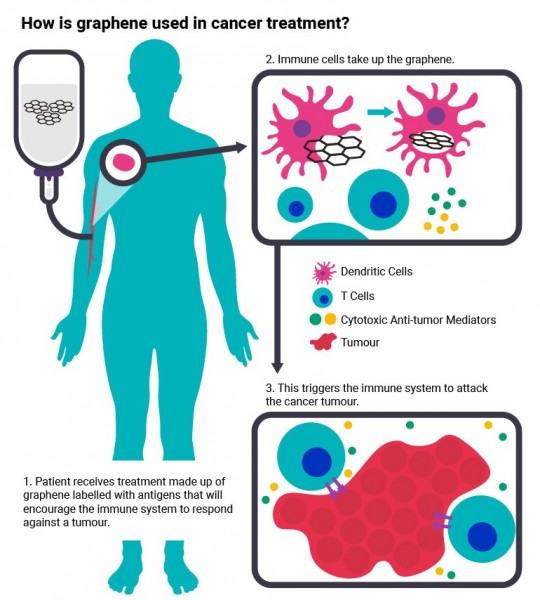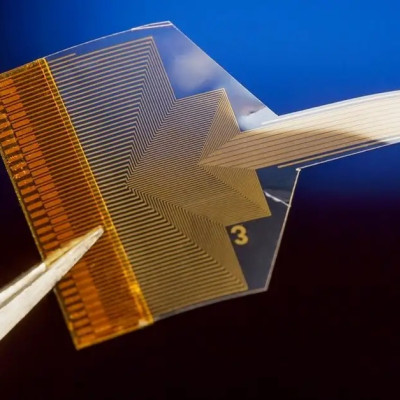The survey will help researchers understand how nanomaterials and nanotechnologies are perceived by the public and hope it will help bridge gaps in their knowledge.
The initiative also aims to inform the public on how combining nanomaterials with cancer medicines could help target cancers and reduce the possible side effects of current cancer medicines.
The project is part of the EPSRC-funded 2D-Health Programme Grant led by Professor Kostas Kostarelos in collaboration with different labs across the University of Manchester.

The 2D-Health project aims to utilise the unique properties of nanomaterials such as graphene and graphene oxide, to develop innovative solutions for specific unmet clinical needs, including cancer immunotherapy and orthopaedics and wound care.
University of Manchester researchers are already working on at new cancer therapies and treatments that use graphene and other nanomaterials to activate the body's immune system. Though the research is at an early phase, it could one day benefit cancer patients.
Dr Swathi Suran, 2D-Health researcher said: “We would like to understand the public's knowledge and acceptance around cancer immunotherapy, a type of cancer treatment, and the use of nanomaterials for cancer therapy to help inform our research.
“We have devised and developed a questionnaire to explore patient and public views on our technology, called Nanomaterials for Cancer Therapeutics, and want to hear from a range of people with different experiences of cancer and cancer treatments."
The data collected from the questionnaire will help to guide future research into the development of these new cancer therapeutics.
This survey was developed with support from Vocal, bringing people and health research together.
Read the original article on The University of Manchester.







